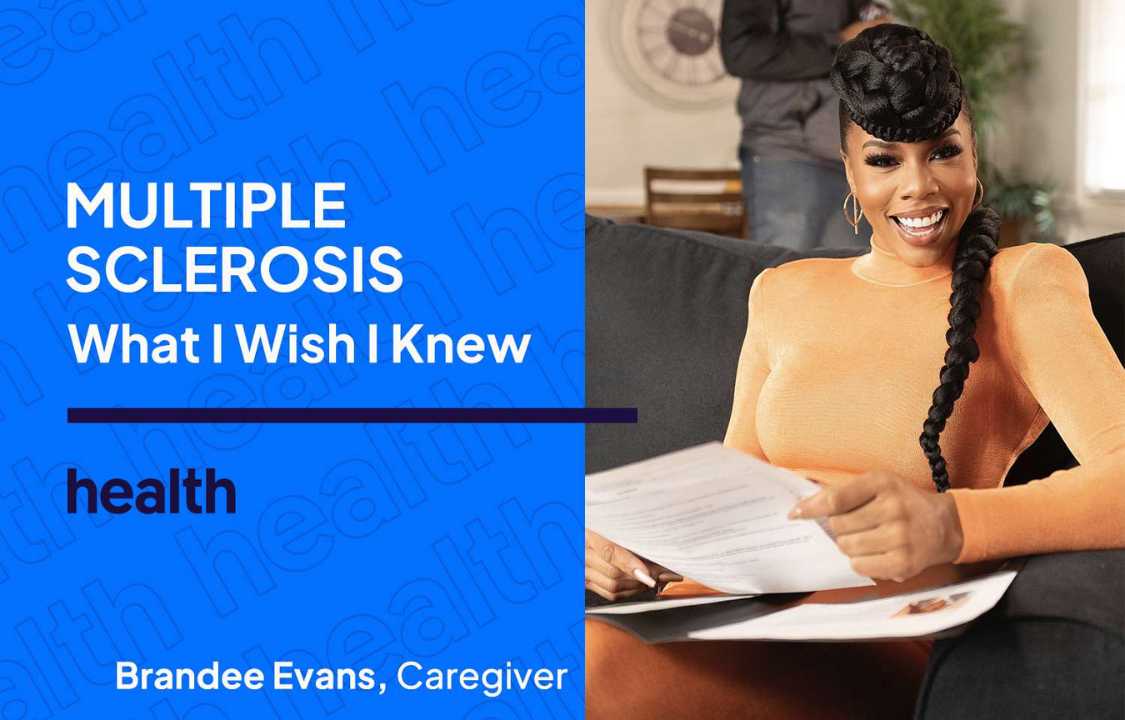Disease, Health Care, Insight
What I Wish I Knew About Multiple Sclerosis in the Black Community
“P-Valley” actress Brandee Evans opens up about being a caregiver for her mother, who has multiple sclerosis.
Multiple sclerosis (MS) is a profoundly impactful condition that affects an estimated 1 million people in the United States alone. This complex central nervous system disease manifests in a wide spectrum of symptoms, ranging from mild inconveniences to debilitating challenges, including numbness, mobility issues, and difficulty swallowing. The journey of an MS patient is often fraught with uncertainty and evolving symptoms, as exemplified by the experience of Diana Harrington, whose daughter Brandee Evans serves as her primary caregiver.
Diana’s MS diagnosis in 2004 marked the beginning of a life-altering journey. Initially, her symptoms consisted of numbness and tingling, which led to a misdiagnosis of carpal tunnel syndrome—a nerve condition that can cause similar sensations in the fingers. However, Diana’s ordeal was far from over. The unsettling sensations began spreading to other parts of her body, particularly her legs, accompanied by recurrent falls and memory issues. At first, these symptoms were attributed to stress or excessive workload, but as they intensified and multiplied, Diana’s family sought answers from a neurologist, leading to a definitive MS diagnosis.
Diana Harrington’s specific form of MS is classified as secondary progressive MS, signifying a steady deterioration in her condition over time. Today, at the age of 69, she requires continuous care, with her daughter Brandee Evans taking on the role of her primary caregiver. This role is a demanding and selfless endeavor, requiring Evans to be available around the clock to assist her mother. Sleepless nights and constant vigilance have become part of her routine, a testament to the dedication and love that defines the caregiver-patient relationship.
One cannot help but admire Brandee Evans’s unwavering commitment to her mother’s well-being, even as the challenges of caregiving continue to mount. Her experiences have provided valuable insights into the demands of caregiving, particularly for someone who is Black caring for a Black loved one with MS. These insights shed light on the often-overlooked nuances of the caregiving journey:
Understanding the Gravity of the Diagnosis
Brandee Evans candidly reflects on her initial response to her mother’s MS diagnosis, which was marked by disbelief and denial. Like many caregivers, she struggled to reconcile the image of her strong, active mother with the harsh reality of a debilitating disease. This phase of denial highlights the importance of early education about the potential severity and unpredictability of MS. Awareness can foster greater empathy and preparedness among caregivers, ultimately enhancing the quality of care provided.
Recognizing Disparities in MS Impact
Evans acknowledges the underrecognition of MS within the Black community. Historically, experts believed that MS disproportionately affected white individuals, but recent research has revealed similar rates among racial groups. However, Black individuals often experience more aggressive disease progression and greater disability, underscoring the need for heightened awareness and support within this community. The lack of widespread discussion about MS in the Black community has left many undiagnosed and uninformed.
Seeking Assistance and Resources
One of the pivotal lessons Evans has learned as a caregiver is the importance of seeking help and utilizing available resources. She wishes she had known earlier about the multitude of programs and benefits designed to support caregivers. These resources can make a significant difference in the caregiver’s ability to provide care without sacrificing their own well-being. Additionally, she emphasizes that these resources are not always readily presented; caregivers must actively seek them out.
Navigating Medical Care as a Black Caregiver
Evans’s experiences highlight a troubling aspect of healthcare—racial disparities in patient care. She encountered instances where doctors did not take her concerns seriously, leading to delays in appropriate diagnosis and treatment. These challenges underscore the need for healthcare providers to actively listen to caregivers and address their concerns, regardless of their racial or ethnic backgrounds. Caregivers are essential partners in patient care and should be treated as such.
Discovering Community Support
Brandee Evans underscores the value of finding support from online communities and groups when caring for a loved one with MS. These platforms provide a sense of belonging and an opportunity to share experiences and advice. Through such online communities, caregivers can gain insights into the various facets of MS and learn from others who have faced similar challenges. These connections can be a source of comfort and empowerment for caregivers.
Prioritizing Self-Care
Perhaps one of the most poignant lessons that Evans shares is the importance of self-care for caregivers. She acknowledges the initial reluctance to leave her mother’s side, fearing that she would be neglecting her duties as a daughter. However, she has come to understand the necessity of taking time for herself, whether it be through short breaks, vacations, or simply trusting hired help to provide care. Self-care is not a sign of neglect but a vital component of effective caregiving.
Additionally, it is essential to recognize the emotional toll caregiving can take on individuals. The constant care and responsibility can lead to burnout, stress, and emotional exhaustion. Brandee’s story underscores the significance of reaching out for help and forming a strong support network.
Furthermore, her advocacy for addressing racial disparities in healthcare sheds light on the systemic issues that disproportionately affect Black individuals, not only as caregivers but also as patients. This highlights the need for healthcare reforms that ensure equitable access to quality care for all.
In conclusion, Brandee Evans’s journey as a Black caregiver serves as an inspiring testament to resilience, compassion, and the strength of caregivers everywhere. Her story prompts us to reflect on the critical role caregivers play in society and encourages us to work towards a more inclusive and supportive healthcare system for all.

